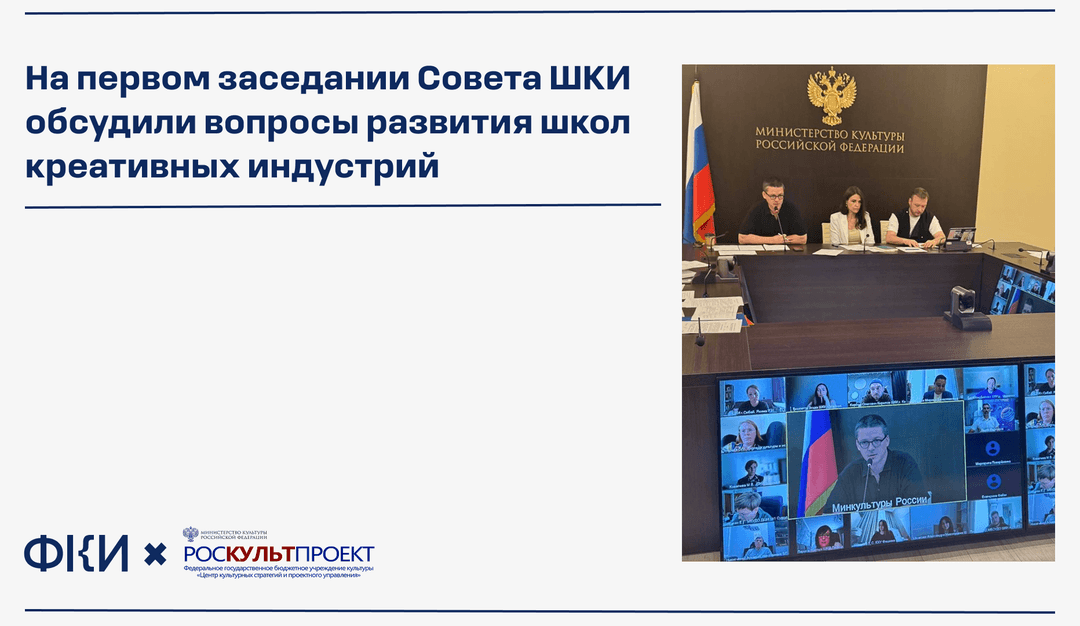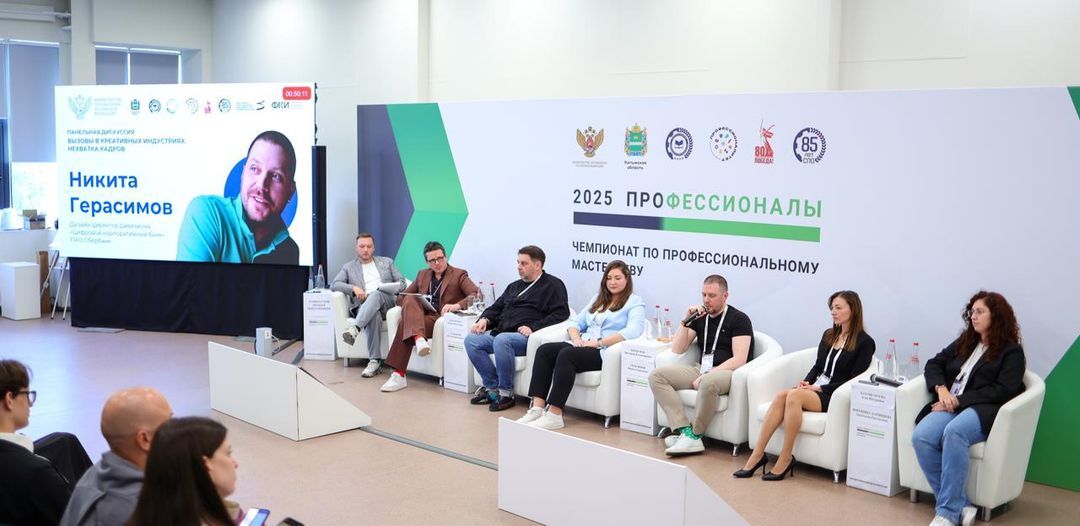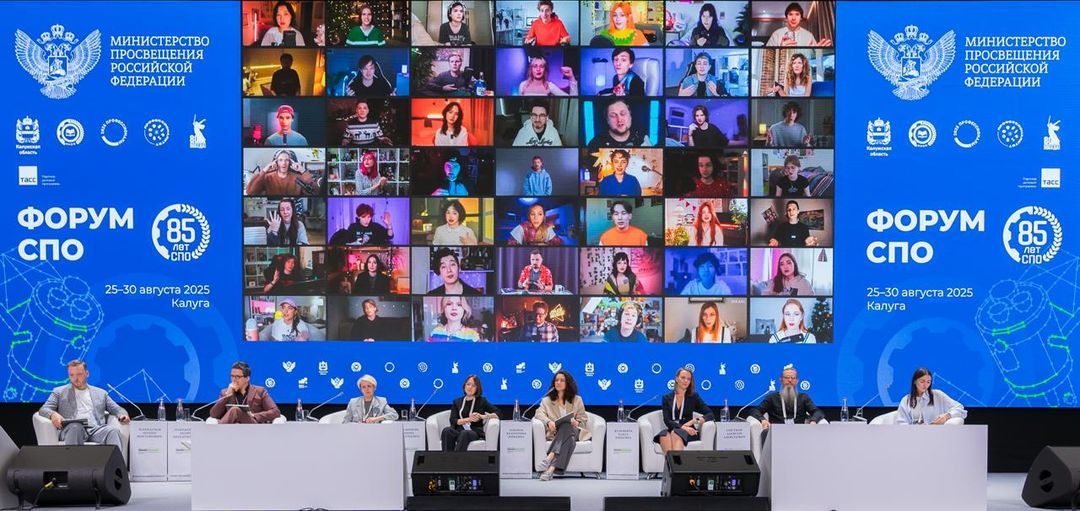

At the First Meeting of the Creative Industries Schools Council (CISC), Issues of Developing Creative Industries Schools Were Discussed

At the first meeting of the Creative Industries Schools Council (CISC), held on July 24, 2025, key topics were discussed, including the formation of a unified regulatory framework for CIS schools, enhancing the professional competencies of teachers, fostering project and competition activities within schools, monitoring performance, and evaluating the effectiveness of educational programs. The event was attended by the Council organizer — ROSKULTPROEKT, Council partners — the Federation of Creative Industries (CIF), the project and event operator for CIS schools, and the Institute for the Development of Professional Education (IRPO), as well as Council members — heads and teachers of CIS schools.
The CIS Council was established by ROSKULTPROEKT to serve as a professional platform for coordinating actions and uniting regional efforts toward the development of schools in a unified strategic direction, improving the quality of supplementary education, developing proposals on methodological support for the educational process, and implementing cultural and educational projects.
Currently, the Council includes 28 leaders of leading CIS schools and representatives of organizations interested in the development of CIS schools. The Creative Industries Federation is represented in the Council by its CEO, Igor M. Namakonov.
According to the Development Strategy for Creative Industries of the Russian Federation until 2030, it is projected that the share of creative products in the country’s GDP will reach 6% (according to the Ministry of Economic Development of Russia, in 2024, the contribution of creative industries to GDP was 4.1%, or 7.5 trillion rubles). Achieving these targets is possible only through a consistent personnel policy involving early career guidance, relevant educational programs, and close integration of students in creative professions with real business. The role of CIS school leaders and teachers, their engagement, competence, relevance of knowledge base, and technical equipment of schools are crucial in this regard.
«In the career trajectory ‘Creative Industries Schools — Creative Industries Colleges — Higher Education’, the CIS network plays a fundamental role. It is at the CIS level that professional taste is formed in teenagers — at the very moment when a young person is no longer a child but not yet shaped by adult norms. It is especially important at this age to support creative impulses and show the path for professional development. CIS schools handle this task excellently. Students create creative products, address monetization and copyright protection issues. And all this starting from age 12! Across nearly 60 regions of the Russian Federation. One of the key tasks of the Council is to streamline interregional and inter-school cooperation — so that best practices are preserved, effective approaches are replicated, and experiences are exchanged promptly to fertilize each other’s growth. The Federation of Creative Industries will actively assist the Council in this process», shared Igor M. Namakonov, CEO of Creative Industries Federation.
According to the Ministry of Culture of the Russian Federation, currently 93 Creative Industries Schools operate in 59 regions of the country. Around 10,000 students aged 12-17 acquire professions in the creative sector, such as design, sound engineering and contemporary music production, photo and video shooting and editing, use of interactive digital technologies VR and AR, 3D graphics, animation, and more.







